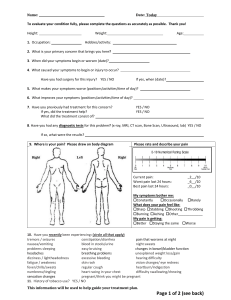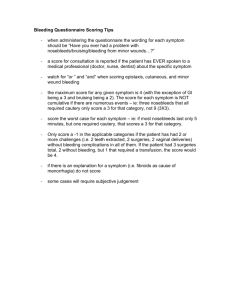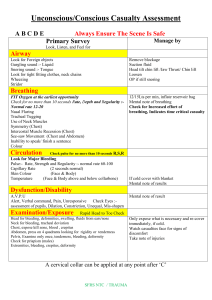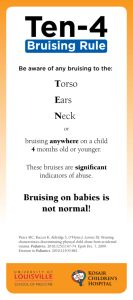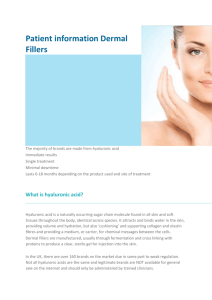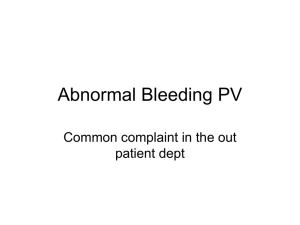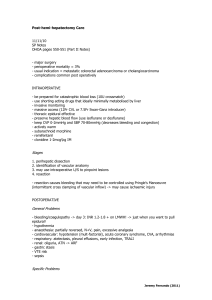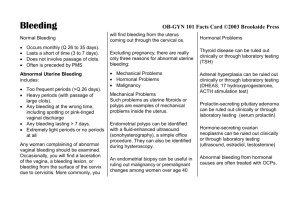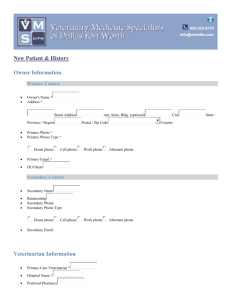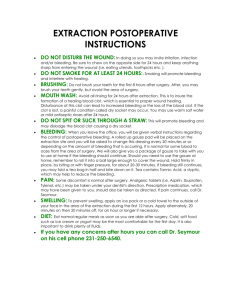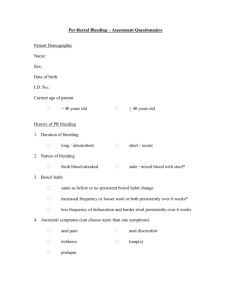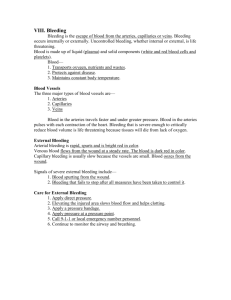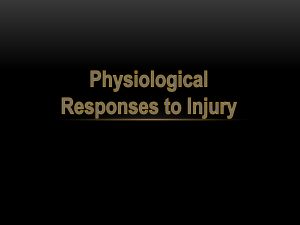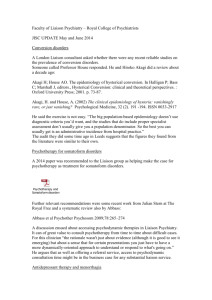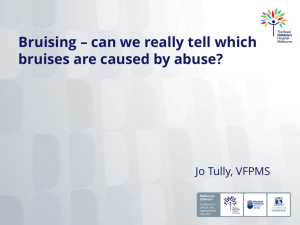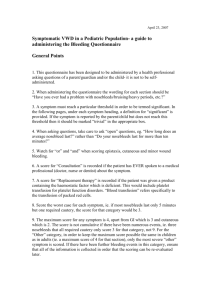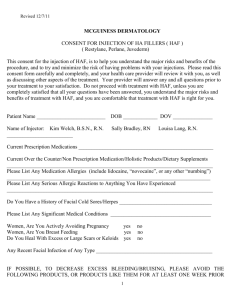A New Instrument for Measuring Anticoagulation
advertisement
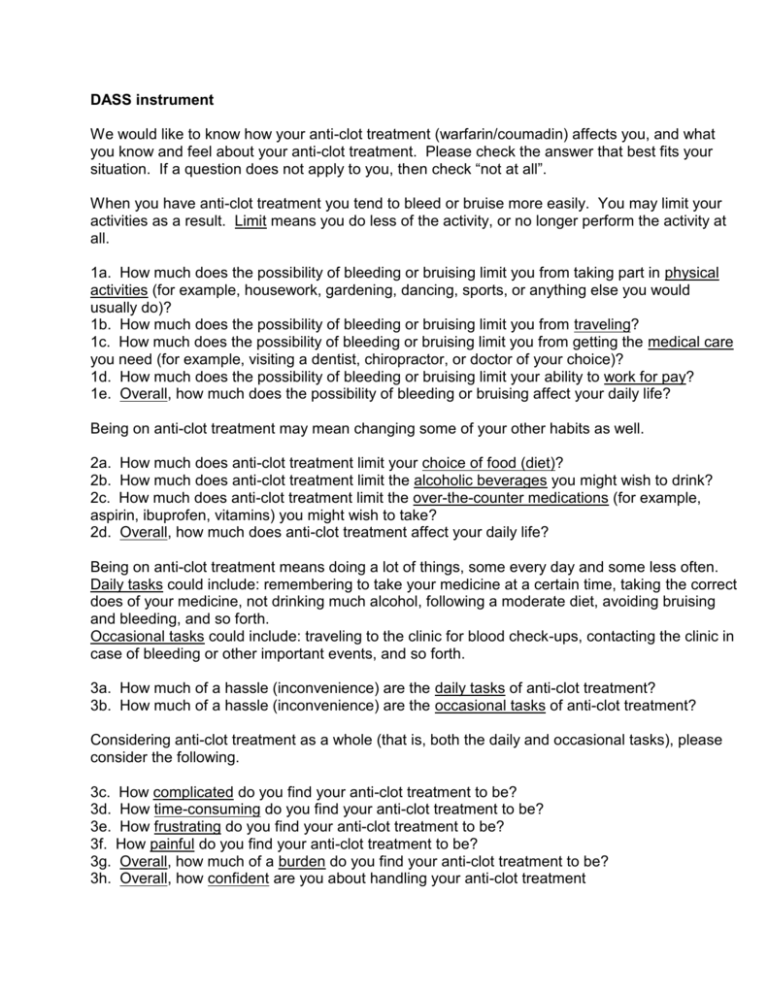
DASS instrument We would like to know how your anti-clot treatment (warfarin/coumadin) affects you, and what you know and feel about your anti-clot treatment. Please check the answer that best fits your situation. If a question does not apply to you, then check “not at all”. When you have anti-clot treatment you tend to bleed or bruise more easily. You may limit your activities as a result. Limit means you do less of the activity, or no longer perform the activity at all. 1a. How much does the possibility of bleeding or bruising limit you from taking part in physical activities (for example, housework, gardening, dancing, sports, or anything else you would usually do)? 1b. How much does the possibility of bleeding or bruising limit you from traveling? 1c. How much does the possibility of bleeding or bruising limit you from getting the medical care you need (for example, visiting a dentist, chiropractor, or doctor of your choice)? 1d. How much does the possibility of bleeding or bruising limit your ability to work for pay? 1e. Overall, how much does the possibility of bleeding or bruising affect your daily life? Being on anti-clot treatment may mean changing some of your other habits as well. 2a. How much does anti-clot treatment limit your choice of food (diet)? 2b. How much does anti-clot treatment limit the alcoholic beverages you might wish to drink? 2c. How much does anti-clot treatment limit the over-the-counter medications (for example, aspirin, ibuprofen, vitamins) you might wish to take? 2d. Overall, how much does anti-clot treatment affect your daily life? Being on anti-clot treatment means doing a lot of things, some every day and some less often. Daily tasks could include: remembering to take your medicine at a certain time, taking the correct does of your medicine, not drinking much alcohol, following a moderate diet, avoiding bruising and bleeding, and so forth. Occasional tasks could include: traveling to the clinic for blood check-ups, contacting the clinic in case of bleeding or other important events, and so forth. 3a. How much of a hassle (inconvenience) are the daily tasks of anti-clot treatment? 3b. How much of a hassle (inconvenience) are the occasional tasks of anti-clot treatment? Considering anti-clot treatment as a whole (that is, both the daily and occasional tasks), please consider the following. 3c. How complicated do you find your anti-clot treatment to be? 3d. How time-consuming do you find your anti-clot treatment to be? 3e. How frustrating do you find your anti-clot treatment to be? 3f. How painful do you find your anti-clot treatment to be? 3g. Overall, how much of a burden do you find your anti-clot treatment to be? 3h. Overall, how confident are you about handling your anti-clot treatment These last questions ask what you know and feel about your anti-clot treatment. 4a. How well do you feel that you understand the medical reason for your anti-clot treatment? 4b. How much do you feel reassured because of your anti-clot treatment? 4d. How much do you worry about bleeding and bruising? 4f. Overall, how much has anti-clot treatment had a positive impact on your life? 4g. Overall, how much has anti-clot treatment had a negative impact on your life? 4h. Overall, how satisfied are you with your anti-clot treatment? 4i. Compared with other treatments you have had, how difficult is your anti-clot treatment to manage? 4j. How likely would you be to recommend this form of anti-clot treatment to someone else with your disease or medical condition? Items 3h, 4a, 4b, 4f, 4h and 4j should be reverse coded. Items 4c and 4e were deleted. These deleted items were worded as follows: 4c. How much do you worry about your anti-clot treatment? 4e. How much do you worry about the bad things (for example, stroke) which your anti-clot treatment is intended to prevent?
